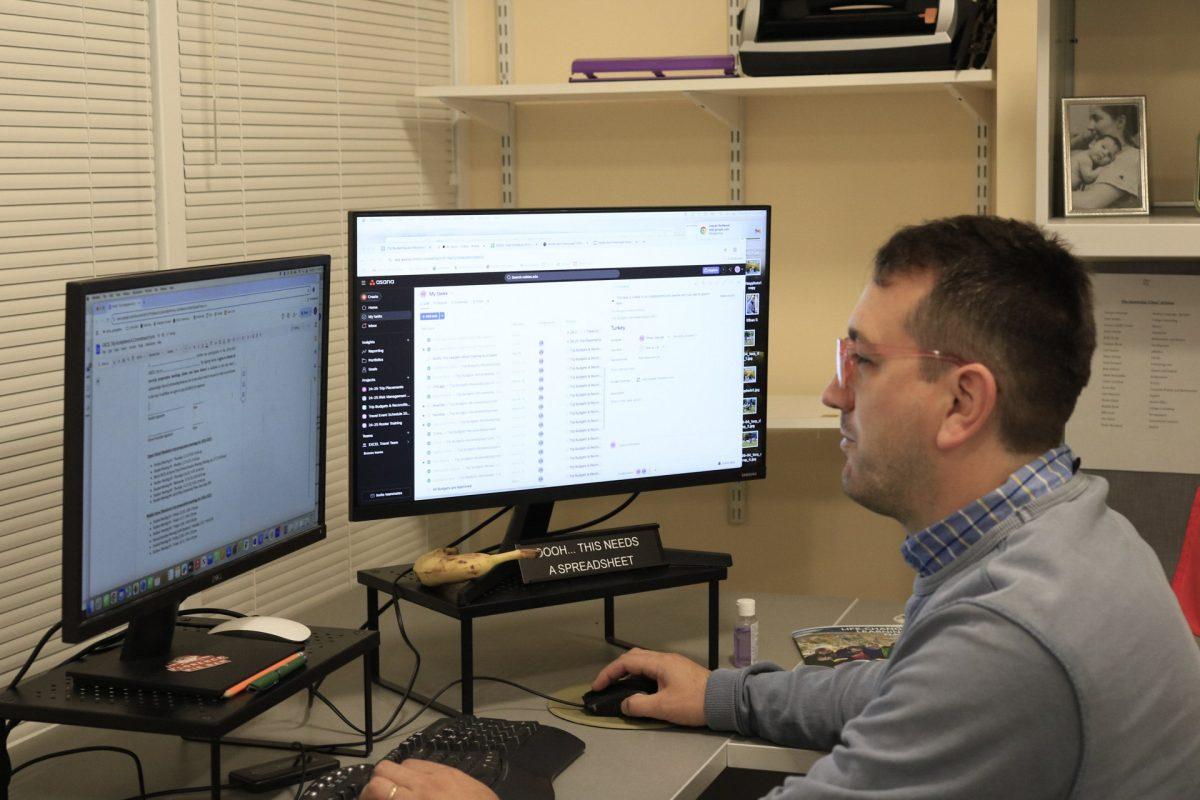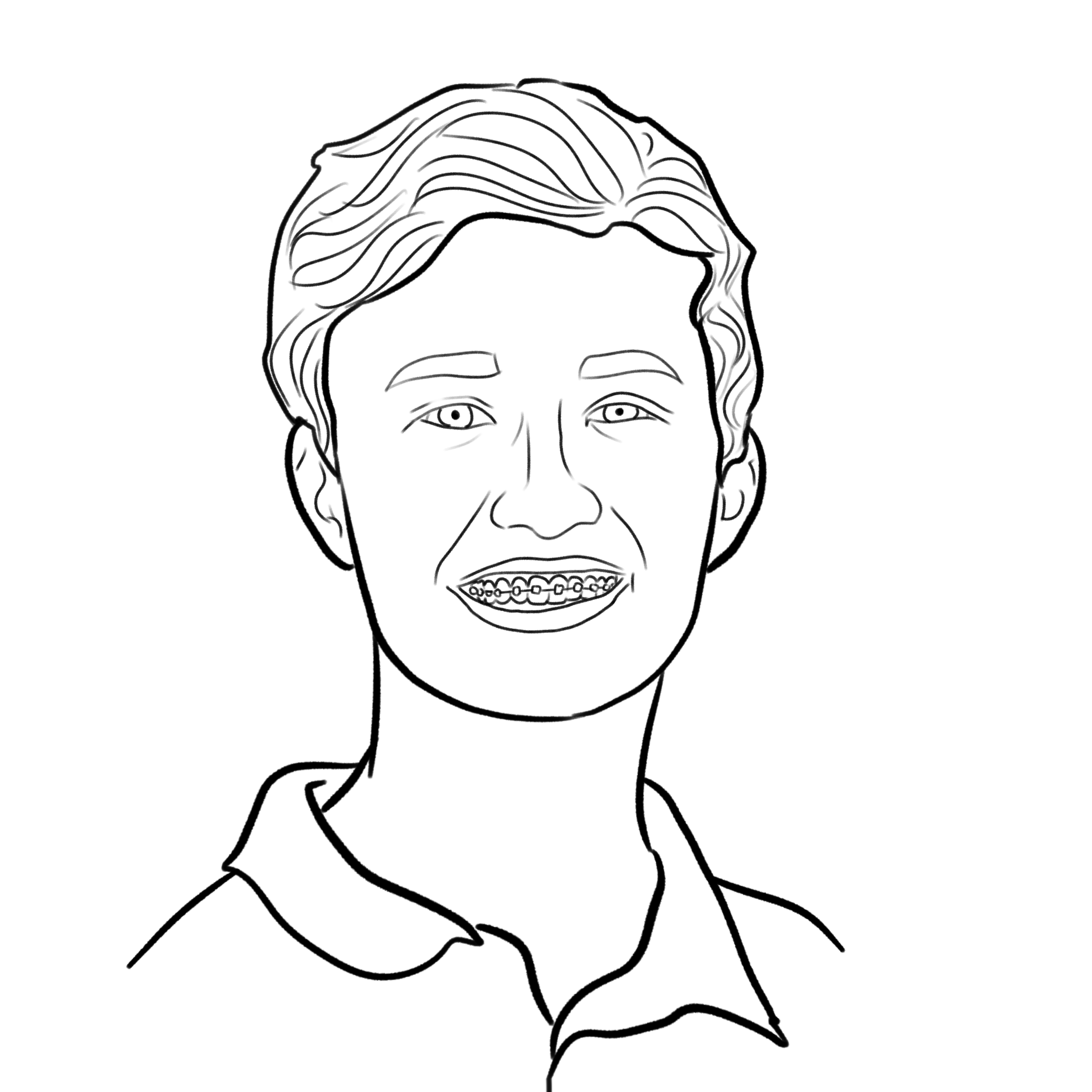
EXCEL trips are an essential and thrilling part of the Nobles experience, with 13 trips offered in 2025. These trips offer students fantastic opportunities to get out of their comfort zone, explore the world, immerse themselves in the local culture, and much more. However, the EXCEL department has seen students increasingly wanting to go on only one specific trip. For that and other reasons, the EXCEL department decided to revamp the application and selection process this fall, led by the efforts of Director of EXCEL Laura Neubauer and Assistant Director Ethan George.
The application this year has the same three questions for every trip, instead of the previous application’s one general question and two to three trip-specific questions. The first question now allows students to explain their interests and rankings for each trip. The application also changed this year to utilize tiered selections. Students put two trips they are most excited about into the first tier, at least one trip they might want to go on into the second, and any additional trips they would consider in the third tier. George and Neubauer both emphasized that they wanted students to explore new possibilities beyond their first choice, and the question changes allow this without requiring students to do extra work. “The purpose of the change was so that we could push students to be open-minded about more than just one trip, and push towards stepping outside that comfort zone,” George said.
Although these changes continue to evolve, students have been supportive of the simplified application process and broadening trip choices so far. Andy Baeck (Class II) has noticed a considerable shift in this year’s application compared to previous years. “I thought the application this year was a lot simpler than last year. I was hesitant to apply to more than one trip my freshmen year because I would have to answer a whole another set of questions,” Baeck said. Claire Chow (Class III) shared a similar sentiment. “I didn’t apply last year, but starting off fresh, I think it was pretty manageable with just three questions. I got them done in a weekend if I spent a solid hour or two on them, so I like them a lot,” Chow said. Additionally, Chow was open-minded and willing to go on any trip she was accepted to, showcasing the success of the goal of the application changes.
“I thought the application this year was a lot simpler than last year. I was hesitant to apply to more than one trip my freshmen year because I would have to answer a whole another set of questions.”
The other major change was the selection process becoming more centralized to promote fairness and lack of bias. In his first year at Nobles, George created an Excel algorithm with the assistance of ChatGPT that centralizes the first step of roster building in the EXCEL department. This algorithm takes into account a student’s class, trip experience, and tiered ranking, as well as language courses and afternoon programs, if applicable, to give a first draft of trip lists. Then, the rosters are given to the nurses for health issues, deans for social dynamics and a mix of genders, and trip leaders for final feedback and changes where necessary.
This new approach was designed to reduce trip leaders’ personal bias when choosing students. “We were finding that trip leaders were more apt to choose students that they knew, and we felt that was unfair to students who may not have had a class with that teacher before or had a relationship with that teacher,” Neubauer said. It has also decreased the workload for trip leaders. According to Talya Sokoll, Camp Sunshine trip leader, leaders used to create their own lists, which would require significant work and communication to ensure there was no trip overlap. “It’s honestly just gotten easier having somebody else do the initial round. The majority of the kids that I was excited about taking are all kids that ended up on the trip. [] As more and more kids apply to trips, it just makes it easier and more streamlined,” Sokoll said.
“If we can start to see a culture shift of people applying and being excited about more and more trips because they’re more open-minded, then I think we will have been successful.”
The EXCEL department will continue to improve the process as they evaluate its success. One metric is that there was a 30% decrease in applications this year, from 270 to 186. George and Neubauer are unsure about the reasoning for this, but they think that last year may have been an outlier with a full slate of trips returning for the first time post-COVID. However, other early numbers show successful results in increasing opportunities. According to George, 92% of applicants got placed on a trip compared to 74% last year, and 88% of applicants were placed on their first-tier choice compared to 56% on their first choice last year. The EXCEL department plans to continue measuring the results of the application changes by examining the percentage of students who accept their placement and results from student surveys. Beyond the numbers, the department’s main goal is to shift the culture so that Nobles students are excited about trying different trips. “If we can start to see a culture shift of people applying and being excited about more and more trips because they’re more open-minded, then I think we will have been successful,” Neubauer said.
